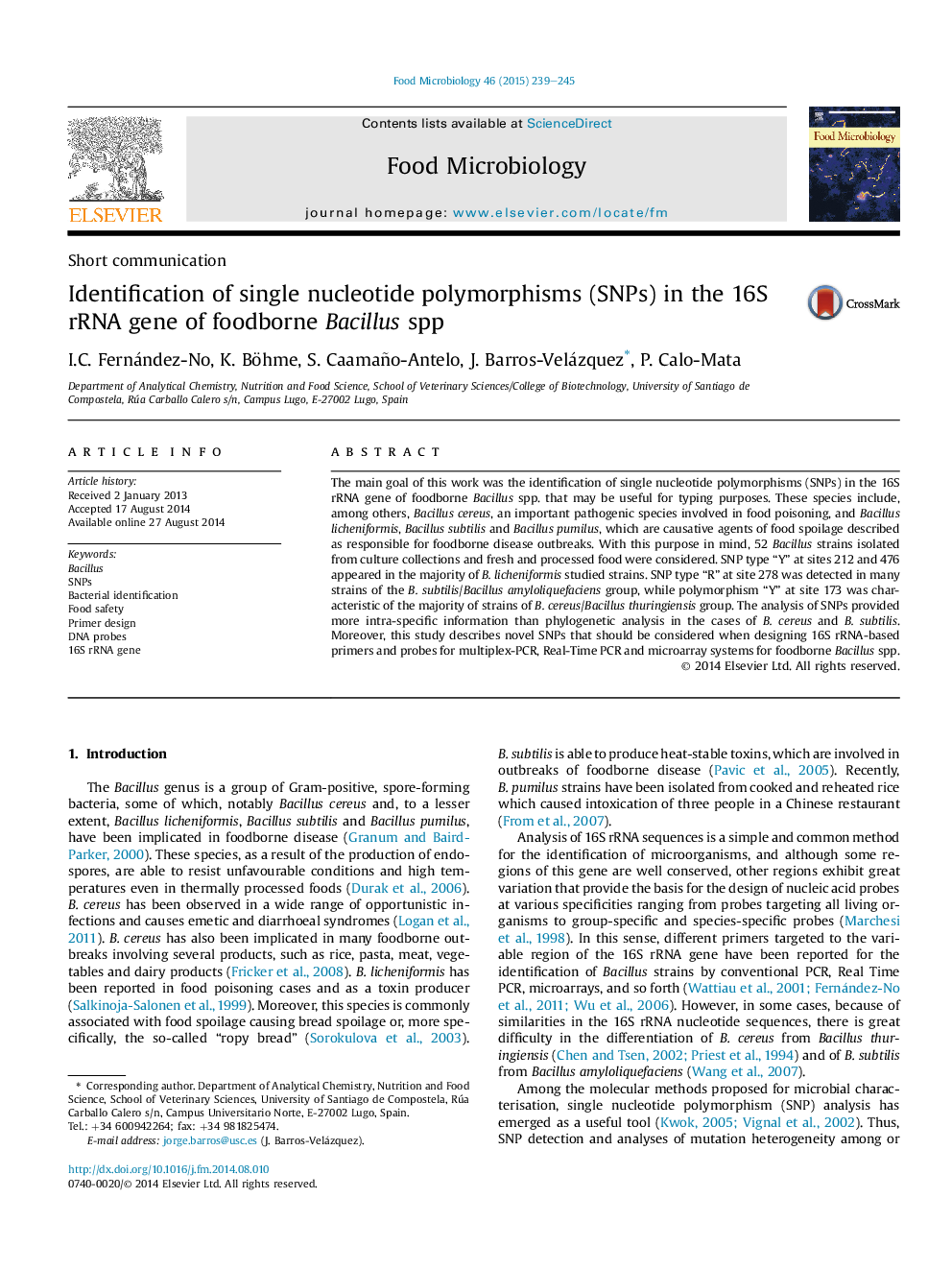| Article ID | Journal | Published Year | Pages | File Type |
|---|---|---|---|---|
| 6288549 | Food Microbiology | 2015 | 7 Pages |
â¢Novel SNPs in the 16S rRNA gene of foodborne Bacillus spp. were identified.â¢These SNPs are important for designing 16S rRNA-based primers and probes.â¢SNPs knowledge allows a better development of Bacillus spp. identification systems.â¢Intra-specific information in the cases of Bacillus cereus and Bacillus subtilis was obtained.
The main goal of this work was the identification of single nucleotide polymorphisms (SNPs) in the 16S rRNA gene of foodborne Bacillus spp. that may be useful for typing purposes. These species include, among others, Bacillus cereus, an important pathogenic species involved in food poisoning, and Bacillus licheniformis, Bacillus subtilis and Bacillus pumilus, which are causative agents of food spoilage described as responsible for foodborne disease outbreaks. With this purpose in mind, 52 Bacillus strains isolated from culture collections and fresh and processed food were considered. SNP type “Y” at sites 212 and 476 appeared in the majority of B. licheniformis studied strains. SNP type “R” at site 278 was detected in many strains of the B. subtilis/Bacillus amyloliquefaciens group, while polymorphism “Y” at site 173 was characteristic of the majority of strains of B. cereus/Bacillus thuringiensis group. The analysis of SNPs provided more intra-specific information than phylogenetic analysis in the cases of B. cereus and B. subtilis. Moreover, this study describes novel SNPs that should be considered when designing 16S rRNA-based primers and probes for multiplex-PCR, Real-Time PCR and microarray systems for foodborne Bacillus spp.
